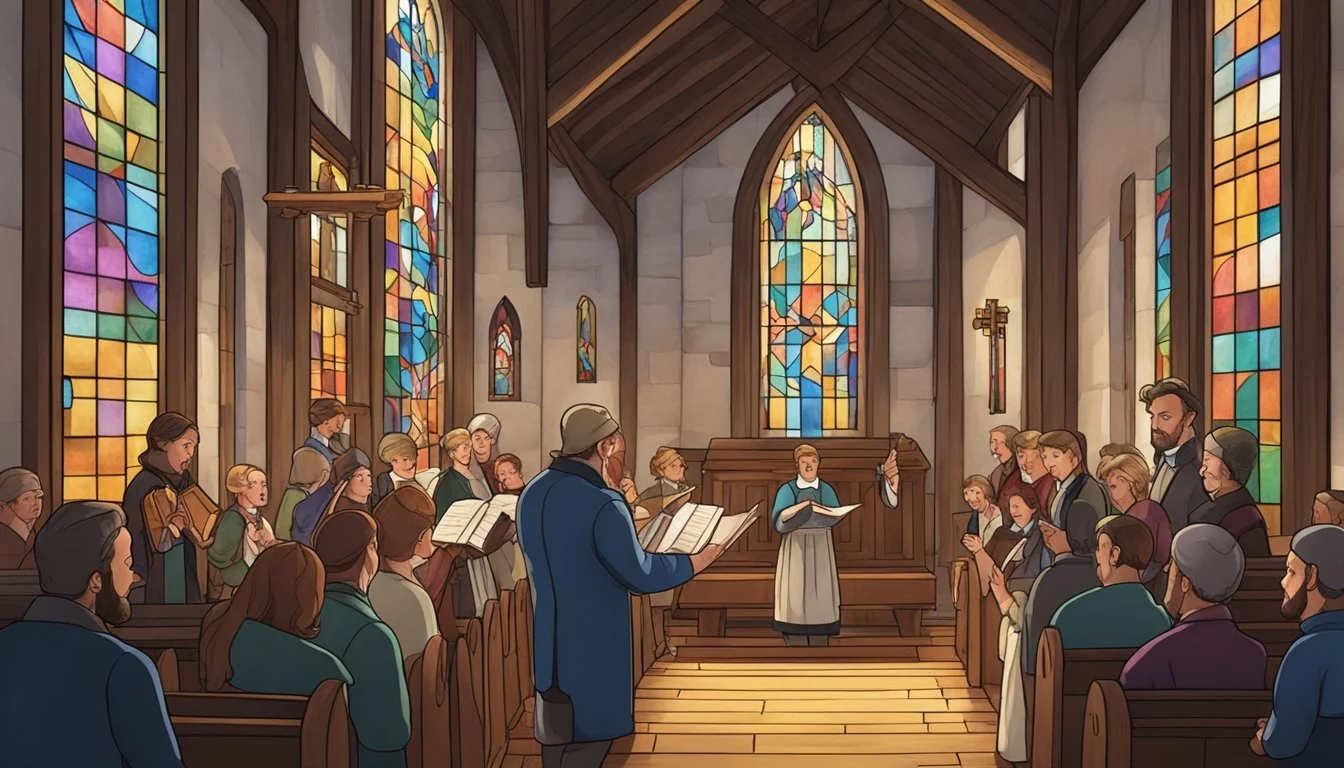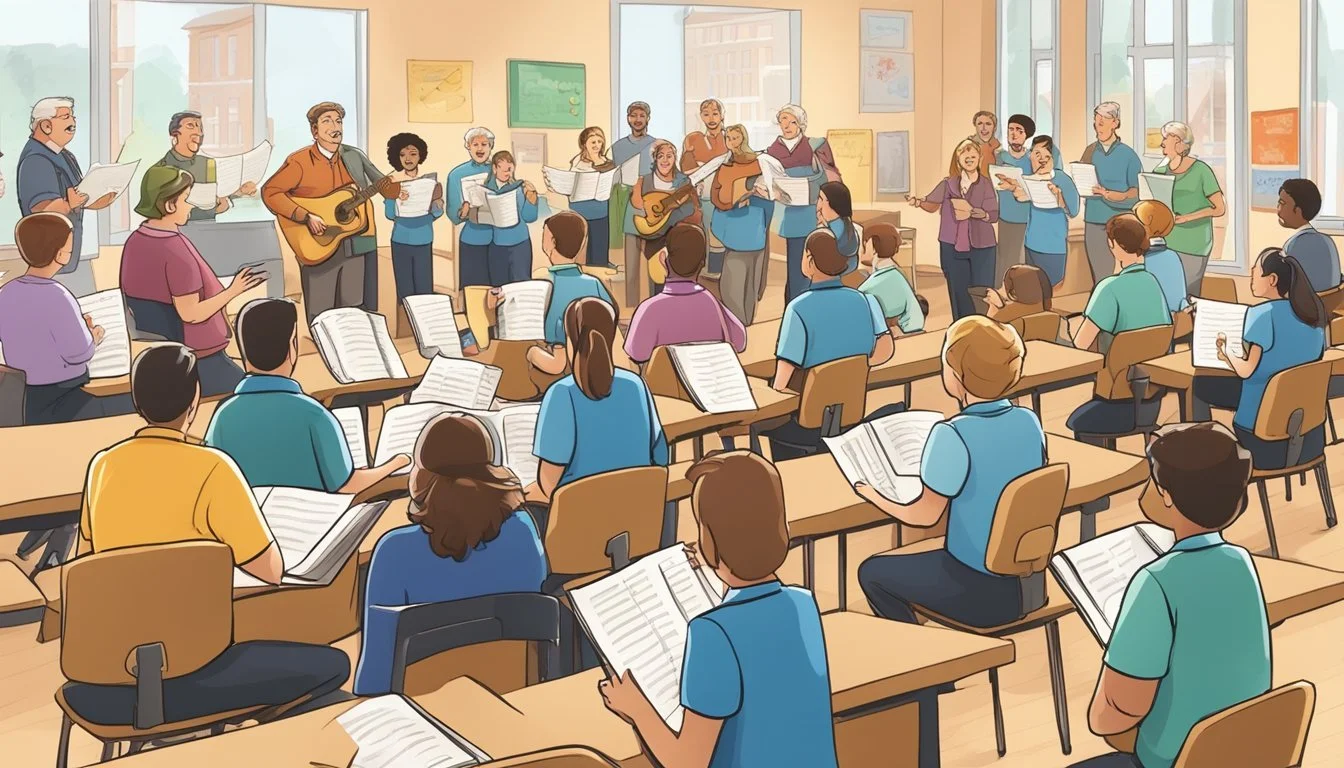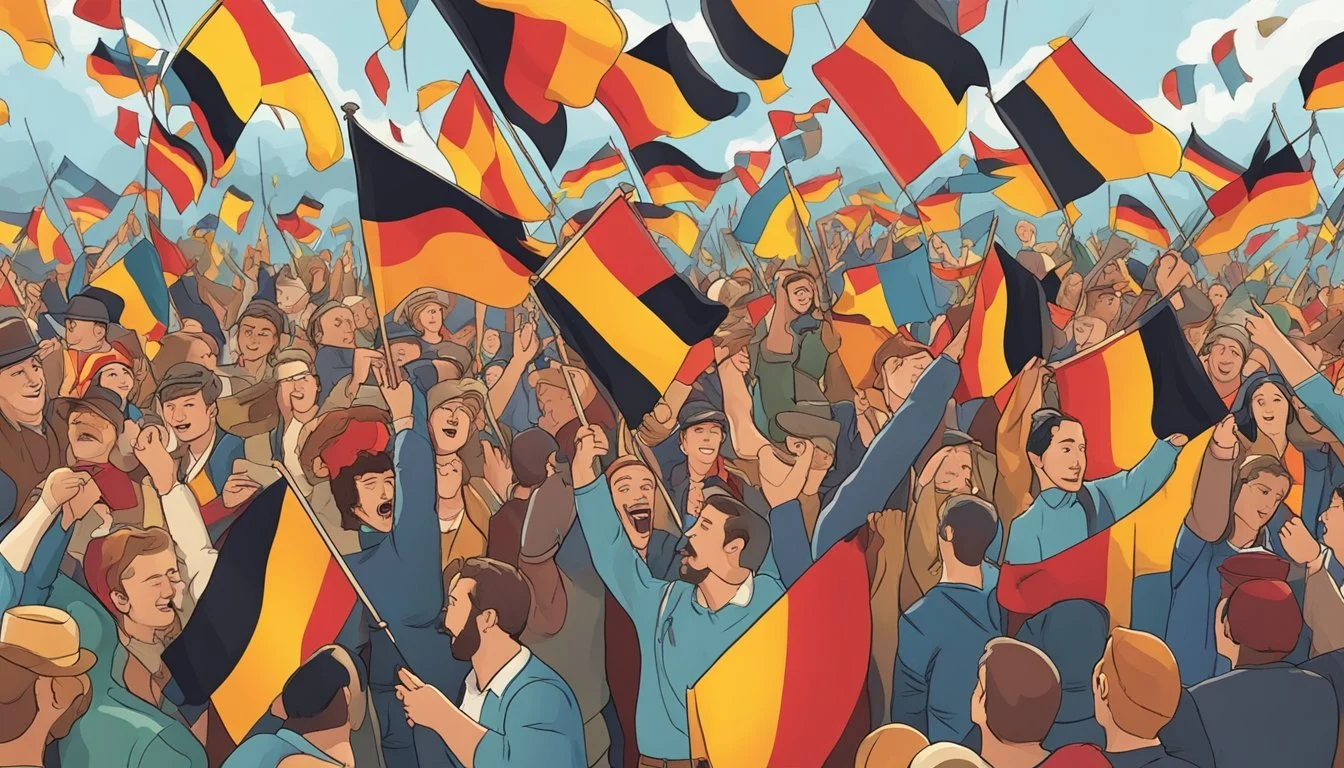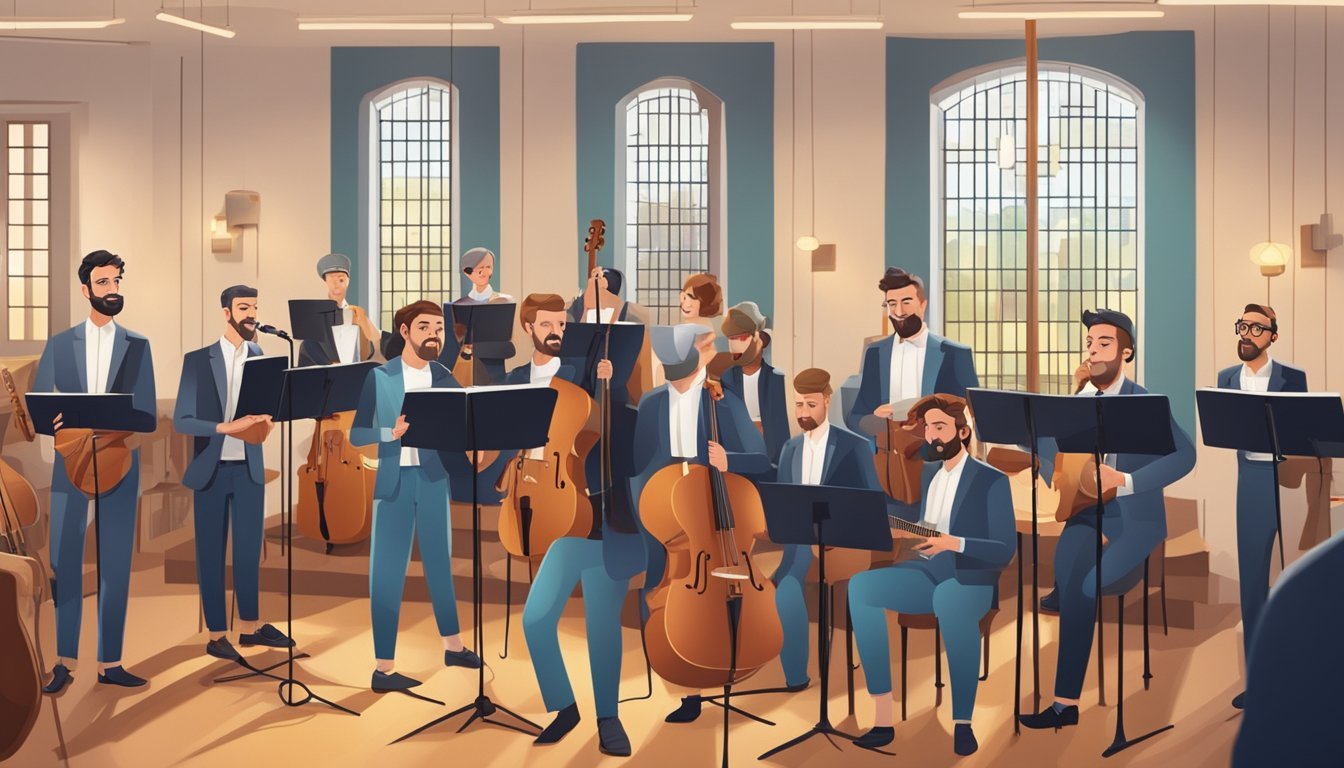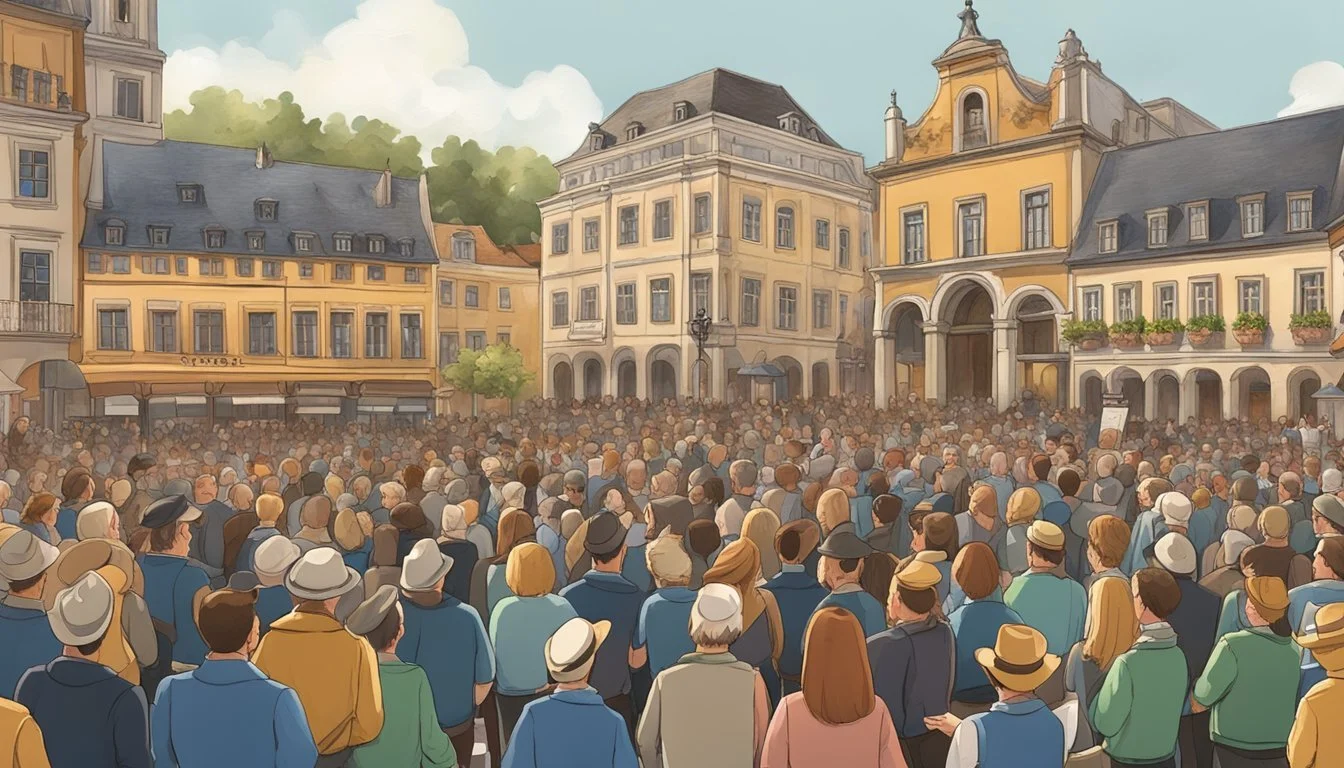German Texan Choral Traditions
Preserving Cultural Heritage Through Song
The enduring legacy of German Texan choral traditions is a reflection of the rich tapestry of cultural heritage woven into the fabric of Texas history. Since the mid-19th century, German immigrants have contributed significantly to the cultural mosaic of the state, bringing with them a strong tradition of choral music. In the heart of Texas communities like Fredericksburg and New Braunfels—towns founded by German settlers—singing societies known as Gesangvereine emerged as cornerstones of cultural life. These societies cherished folk, religious, and classical music, performing at family events, church functions, and community gatherings.
As integral parts of social life among German Texans, singing societies operated beyond mere entertainment. They served as venues for social cohesion, helping to preserve the German language and traditions in an evolving Texan landscape. The German choral groups often performed at Saengerfests, or singing festivals, events that showcased a collective celebration of music and heritage. Through these festivals and the everyday practice of choral singing, German Texans maintained a connection with their roots while simultaneously enriching the broader cultural scene of Texas.
While the German influence on Texan culture extends to various facets such as politics, architecture, and gastronomy, music remains one of the most visible legacies. This tradition of choral music continues to thrive in modern Texas, with organizations like the Deutsch-Texanischer Sängerbund still actively promoting German-Texan musical heritage. The robust survival of these choral traditions speaks to the enduring nature of cultural expression and its ability to connect communities across generations.
Historical Origins
The German influence on Texan choral traditions dates back to the 1800s, marking a significant contribution to the state's cultural tapestry, particularly in the formation of German singing societies.
Early German Immigrants
German immigrants began arriving in Texas in significant numbers in the 1830s. Seeking economic opportunities and political freedom, they initially landed at the port of Galveston and steadily moved inland. Key settlements included New Braunfels and Fredericksburg, shaping pockets of German-Texan culture. These immigrants carried with them a rich historical background, steeped in musical tradition that soon found fertile ground in Texas.
German Singing Societies Formation
By the mid-19th century, German Singing Societies (Gesangvereine) emerged as cultural cornerstones within these communities. Texas saw its first singing society established in New Braunfels in 1850. These groups originally formed as all-male choirs, performing a variety of folk, religious, and classical music at family gatherings, church services, and community events. Their presence fostered a unique ambiance within the German-Texan enclaves, enabling the transmission of cultural values and the celebration of heritage through song.
Cultural Impact
The German Texan choral traditions have resonated deeply within the state, leaving a lasting influence on its musical landscape and fostering community cohesion. These traditions are not merely artifacts of culture but are living practices that continue to evolve.
Influence on Texan Music
German Texan choral traditions have significantly shaped Texan music, especially in the genres of folk music and classical music. They introduced the choral works of German composers to Texas, integrating it with local music practices. This blend has enhanced Texan music, making it rich with melodic diversity and harmonic complexity. German choirs and music groups have also been instrumental in preserving classical music within the state.
Saengerfests and Community Gatherings
Saengerfest, a festival originating from Germany, is a pivotal part of the cultural landscape in Texas. These festivals are large community gatherings that celebrate German music and culture through choral competitions and performances. Often organized by entities like the German Free School, Saengerfests have been critical venues for communal expression and cultural exchange, strengthening the bonds within the German Texan community.
Key Saengerfest Contributions:
Promote choral music and training
Preserve German folk and classical music
Facilitate cultural heritage events
Integration with Texan Culture
The German Texan choral traditions have been seamlessly integrated into the broader Texan culture. Organizations such as the German-Texan Heritage Society have worked to maintain this integration by promoting German culture, music, and educational opportunities. Through these concerted efforts, Texan culture has become a unique tapestry, interwoven with threads of German heritage. The community's celebration and respect for these traditions underscore their importance within the state's diverse cultural identity.
Language and Education
In the realm of German-Texan choral traditions, the nurturing of the German language and its educational aspects play a crucial role in preserving the cultural heritage. Fostering proficiency in German not only supports choral practices but also reinforces the historical identity of the community.
Teaching of German Language
German language instruction has been a cornerstone of cultural education within the German-Texan community. Organizations such as the German-Texan Heritage Society (GTHS) have been instrumental in providing language classes since 1995. They cater to a range of learners, from children to adults, using instructors who are native or near-native German speakers. The classes are available both in-person in Central Texas and online, ensuring wide accessibility.
For adults: Courses during a 16-week fall and spring semester, plus summer sessions.
For children and teens: Age-appropriate curriculum and interactive learning.
German in Schools
Houston, Austin. The integration of German language education in Texan schools reflects a commitment to heritage. While not ubiquitous, German programs in schools provide students with the linguistic skills necessary to participate in German singing and cultural events, which are integral to community traditions. Some educational institutions go beyond mere language acquisition, encouraging students to engage with German history and the contributions of German-Americans to Texan culture.
Elementary to High School: Introduction to German language, with a focus on both written and spoken forms.
University Level: Advanced courses in German language, literature, and cultural studies, sometimes encompassing the historical context of German migration to Texas.
Books and educational materials often serve as important resources for both learners and educators in this endeavor, with content that ranges from language instruction to the history of German singing societies in Texas.
Social and Cultural Organizations
In Texas, German choral traditions have been sustained through a network of social and cultural organizations. They have played a pivotal role in preserving the community's heritage and fostering a sense of unity.
Verein and Community Clubs
Vereins are clubs that have been fundamental in upholding German customs within Texas. These organizations operate as community clubs where individuals with shared roots come together to celebrate their culture. Damenchor (women's choirs) and mixed choirs at the Saengerrunde Hall exemplify the social aspect of these societies, gathering members for practice and performance, thus nurturing both social bonds and musical heritage.
Notable Vereins:
German Singing Societies - All-male choral groups prevalent in German communities in Texas, particularly in the 1800s and early 1900s.
Saengerrunde Hall - A focal point for communal singing activities in Austin, offering a venue for both practice and cultural events.
Texas State Sängerbund
The Texas State Sängerbund emerged as an essential institution for German choral music in the state. This statewide association of singing societies has been responsible for organizing major events such as singing festivals, known as Saengerfests, which are grand occasions that unite singers from various parts of Texas, thereby serving to reinforce cultural ties and promote German music traditions.
Saengerfests: These festivals are significant events in the cultural calendar of German Texan societies, fostering camaraderie and cultural exchange through music.
Festivals and Celebrations
The rich tradition of German-Texan choral customs comes alive during festivals and celebrations, particularly during Christmas and Saengerfest.
Christmas Traditions
German-Texans celebrate Christmas with a blend of German customs and Texan warmth. Homes are decorated with traditional decor, including handcrafted ornaments and wreaths. Central to the festivities is the Christmas Tree, or Tannenbaum, often adorned with candles, ribbons, and family heirlooms. Typical food enjoyed during this season includes Weihnachtsplätzchen (Christmas cookies) and Stollen (fruit bread). The arrival of Santa Claus, locally referred to as der Weihnachtsmann or Saint Nicholas, brings joy to children as they anticipate their Christmas morning surprises.
Saengerfest Celebrations
Saengerfest is a cornerstone of German-Texan choral tradition, celebrating the community’s love for music. These gatherings, which date back to the 1800s, showcase a variety of music from folk to classical genres. Multiple German singing societies come together to perform in harmony, preserving their heritage. Saengerfests are not just about music; they are festive events with traditional German cuisine (What Wine Pairs Perfectly With German Cuisine), engaging activities, and the bringing together of communities to honor shared traditions.
Modern Developments
The contemporary landscape of German-Texan choral traditions reflects the sustained impact of early settlers, with a surge of interest in preserving the unique blend of cultural heritage through music.
German-Texan Identity
German-Texans have maintained a strong sense of identity through the centuries, which today is expressed in part through vibrant singing societies. These groups often serve as guardians of heritage, keeping the German language and traditional music alive. Annual events and festivals, like the Texas Saengerfest, continue to be pivotal in celebrating this rich legacy.
Choral Music in Contemporary Texas
Choral music retains a respected place within modern Texas culture. Contemporary German-Texan choral groups often perform a repertoire that spans folk to classical pieces at community gatherings.
Music Education: Many German-Texan singing societies actively participate in educational outreach programs, teaching younger generations the traditional aspects of their music.
Performances: Performances usually feature both choral and solo renditions, indicative of the societies' commitment to a broad musical scope.
Preservation Efforts: Recording projects and collaborations with other cultural institutions are among the efforts aimed at preserving the music for future generations.
German-Texan choral traditions remain a testament to the enduring nature of these cultural expressions, resonating with the wider fabric of Texas's diverse musical landscape.
Influence on Texan Cities
German-Texan choral groups significantly impacted the cultural landscape of Texas, most notably in the cities of Austin, San Antonio, and Houston. These communities upheld their rich heritage through music, contributing to the diverse cultural fabric of their cities.
Austin's German-Texan Community
Austin has been a vibrant center for German-Texan culture, largely thanks to Scholz Garten, the oldest operating beer garden in America, which opened its doors in 1866. It became a meeting place for German immigrants and the epicenter for community gatherings, where choral music was a main feature of entertainment. Today, Austin's German-Texan community continues to thrive, with churches often hosting traditional choral performances that celebrate their heritage.
San Antonio and Houston's German Heritage
San Antonio's King William district is a testament to its German roots, named after King Wilhelm I of Prussia, reflecting the influence the community had on urban development and culture. The city hosts annual events where German music is a highlight, showing the integration of German customs into local traditions. Similarly, Houston's German-Texan population has fostered a sense of community by forming singing societies. They perform regularly at church services, festivals, and family events, keeping their roots alive through music and community engagement. These performances often blend folk, religious, and classical elements, demonstrating the versatility and depth of German-Texan choral traditions.
Preservation Efforts
In an effort to maintain the German-Texan choral heritage, a number of organizations and archives work diligently to conserve cultural artifacts and historical records. These entities play a crucial role in safeguarding the musical legacy for future generations.
Heritage Conservation Organizations
The German-Texan Heritage Society is a pivotal organization dedicated to preserving the cultural heritage of German Texans, including their choral traditions. Through various initiatives, they restore and maintain historical sites, ensuring that the German influence in Texan culture remains prominent. Similarly, the Texas Historical Commission actively protects and commemorates the musical and cultural contributions of German settlers by registering historically significant locations and providing resources for ongoing conservation efforts.
Main Organizations:
German-Texan Heritage Society
Texas Historical Commission
Cultural Archives
Archives play a significant role in the preservation of choral tradition heritage by collecting and safeguarding artifacts such as scores, recordings, and images. These repositories serve as a bridge connecting the past to present and future enthusiasts. They are a resource for both research and education, ensuring that the cultural heritage is not only preserved but also accessible.
Key Archives Functions:
Collection
Preservation
Access provision

